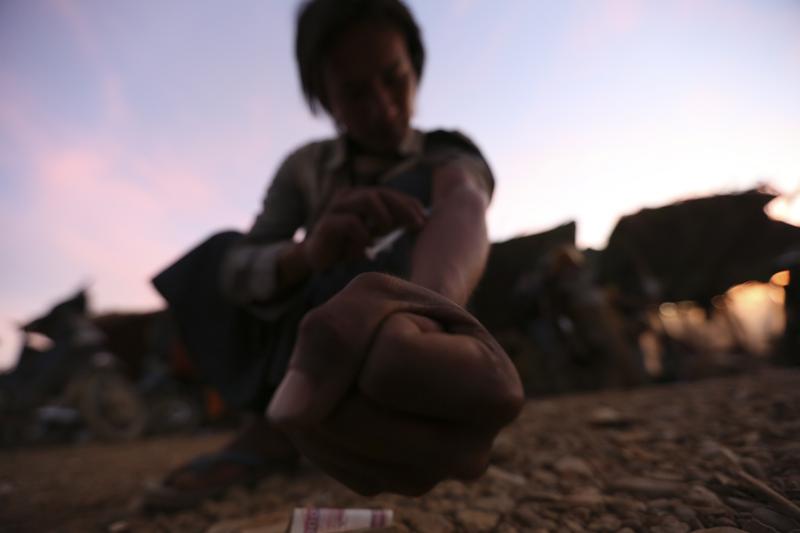The Upper House has approved a bill to amend the Narcotic Drugs and Psychotropic Substances Law of 1993 that would effectively decriminalise drug use in Burma.
According to the legislation as amended, drug users would no longer be punished with often-lengthy jail sentences and would be required to perform community service instead. The Ministry of Home Affairs has said it will tackle issues of narcotics use and addiction in accordance with whatever terms the amended law ultimately stipulates, should it see passage through both houses of Parliament.
“It has been approved [by the Upper House] that offences under the law have been changed to community service. The amended law is the most suitable one, since MPs and experts have contributed to the comprehensiveness of it,” said Major-General Aung Soe, the deputy minister for Home Affairs. “In the implementation of every law, there may be both strengths and weaknesses. We [the Ministry of Home Affairs] will undertake enforcement measures as stipulated by the law.”
The amended law would be applicable only to minor drug-related offences, should it ultimately be implemented.
Under current law, users of illicit drugs can face three to five years in prison if they fail “to register at the place prescribed by the Ministry of Health or at a medical centre recognised by the government,” or otherwise do not abide by prescribed medical treatment related to their rehabilitation.
Regarding potential penalties for repeat offenders, Aung Soe of the Home Affairs Ministry said: “When the by-laws are drafted, there will be more consideration on that matter. There are still many things that need to be discussed further. The by-laws will be drafted after implementation.”
[related]
According to the amended law, offenders would be sentenced to a minimum 180 hours to a maximum 240 hours of community service, with those court-mandated duties — on an unpaid basis — possibly including gardening, cleaning, the repairing of roads and bridges, and/or working for a social services organisation.
The Ministry of Home Affairs, the government’s Central Committee for Drug Abuse Control and the United Nations Office on Drugs and Crime (UNODC) have been working together via consultations on reform to Burma’s primary law on illicit narcotics, with their last meeting on the matter concluding in December of last year.



